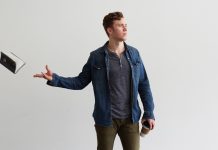In Mexico, diabetic retinopathy[1] is a significant challenge. Professor Pedro Gomez is the director of the Ophthalmology Institute of the University Hospital of Montemorelos in Mexico, renowned for the highest number of eye surgeries in Latin America.
Prof. Gomez established a residency programme in ocular surgery. He is particularly pleased to discuss the itinerant programme, where teams of surgeons from the University of Montemorelos visit remote areas and provide care for patients who would otherwise not have access to a big hospital due to distance and financial constraints. This programme, which is carried out in collaboration with local authorities, is accompanied by educational activities on healthy lifestyles.
When you visit small towns, how do you organise your work?
I would like to give you an example of how we organise our work. Usually, it is the authorities who invite us to go to those towns. There must be at least one hospital with an operating theatre. Some foundations provide us with the necessary resources. Our contribution consists of equipment and specialists.
Yes, and in your expertise in this field.
We send a doctor to the town in question a month before our arrival to examine the locals and let us know how many patients—say 150 or 200 people are ready for surgery. The doctor then prepares the patients, examining them and doing whatever is necessary. Then the team of surgeons goes in and starts operating, using our portable equipment.
A week after the team of surgeons leaves, we send doctors to that town to assess the health of those operated on. After a month, the doctors are sent again to ensure that everything is done properly. We also provide the patients with the necessary medicines. This work has been a great blessing. I remember we went to a town where there was a child with bilateral cataracts.
I have never heard of children with cataracts…
But there are such cases. This child had been able to see a little when he was young, but the disease worsened. He was about eight years old. He had bilateral cataracts, which had severely impaired his vision. He spoke no Spanish, only the local language. After I operated on him, when I removed the bandage, he was overjoyed. He looked for his father, wanting to see his face. So, when he got close to his father, he started touching his face, tears streaming down his cheeks. He was very happy to see his father again. These are the little things that make you feel it’s worth getting involved in this work.
You are happy to see that relationships between people are closer after the patients have regained their sight. And I think this makes you feel the joy that Jesus experienced when he healed the sick. He especially loved to heal the blind by restoring their sight.
Once we have completed our surgical procedures on patients, let’s say we had 50, and they are delighted to regain their sight, we then discuss with them what is important: we have helped them to regain their sight, but only they can open their hearts to Jesus. Why do we do this? We wouldn’t be doing our job completely if we didn’t discuss Jesus with patients, because many people suffer not only because of physical problems but also because of emotional problems.
I recall one instance where, after completing the operation, I approached the patient and offered him a hug, encouraging him to be kind-hearted. However, the patient began to cry, so I asked him why he was crying. He replied that it had been 20 years since anyone had put their arm around his neck. These are lonely, sick people that no one wants to care for.
It’s like being told: You are old and poor. Go away!
I had a patient with leprosy. He was disfigured, he had cataracts, and nobody wanted to operate on him because he had leprosy. We operated on him, but he couldn’t smile because he had lost his facial expressions. But he said, “You can’t imagine how happy I am!” He had seen doctors in several hospitals, but he was very poor and no one wanted to help him.
This programme was set up to help people who have been rejected by society, people who feel lonely. That’s why we tell them about Jesus. Can you imagine what would happen if we didn’t talk to them, if we didn’t tell them that God has a plan for them and can change their lives? If we limited ourselves to operating, those who regained their sight might go on to steal or seduce their neighbour’s wife. We would not like to help people to do more bad things. We have to show the patients the way forward and tell them: “Now you can see, but you have to come to Jesus because He can help you to be better.”
Yes, and to use their new-found ability wisely.
God can change the character of patients as He has changed mine and many others. He has the power to change your life, to help you not to feel lonely and sad, He can help you to forgive. And we tell the patients that they have to forgive their fellow people. We ask them: “Do you thank God for this help? Do you know what God wants you to do? God wants you to forgive your brothers and sisters.”
But they don’t see the connection…
That’s right. We tell them, “If you do not forgive, you will not be happy.” Many people are always sad or carry hatred in their hearts because someone has wronged them and they are unhappy because of it. But you have to show them the gospel. And the beauty of it is not just in the advanced medical techniques or the popularity gained for all these achievements. The Lord has helped us to be appreciated, that is a good thing, we are happy about that, but most of all we are happy that God has blessed us. We are especially happy that we can share with others what God has given us and tell them about His love, His mercy, and His sacrifice on the cross. In this way we can teach people that it is beautiful to be a follower of Jesus.
Often after an operation, even doctors who are not very faithful say, “We have operated on you, but God will heal you.” Do you have the same feeling, the same understanding that you are working with God?
I have 20 years of experience in surgery and I consider myself a skilled surgeon, but I don’t do any surgery without asking God for guidance because we don’t control anything. When you do eye surgery, you make an incision to remove the part affected by the cataract, you put in an intraocular lens and maybe you don’t use stitches because you use modern techniques, but you can’t do more than that. Who is the one who heals the wound? Who is it that gives sight to the blind? Only God, by His power.
We surgeons must be the most humble people in the world because we depend on God’s power to heal the sick. Surgeons have no control over anything: neither the complications of the operation nor the inflammation that follows. We can prescribe medicines, but God’s power is the most important medicine. Another thing we tell our patients is to have faith, because if you read the Bible, you see that Jesus worked miracles for those who believed that they would be healed. We teach patients to pray to God because He is the one who heals them. It is not the doctors who heal the patients, but God.
Do your students have the opportunity to see how the lives of the blind and their families have been improved by the restoration of sight?
For poor people who have a blind person in their home, someone has to take care of them. So other people are also affected. In addition, family members or relatives have to work to provide food for two people, because one person is blind and cannot work, and the other has to take care of the person who cannot see. Children usually help their grandparents or fathers. And when children do this, their whole life changes. They can’t go to school, they can’t develop as regular people, and they can’t learn a trade because they have to take care of the blind person.
But when a patient undergoes an operation, many people’s lives change and the person who has the operation can actually get a job. Here people mainly work in the fields and do not retire; there is no retirement age for such work. So a lot of people’s lives change and children can go to school. We follow up on these things, we go back to the patients’ homes to see how their lives are going.
Tell me more about this.
It is about the quality of our work, because we ask ourselves how we are changing patients’ lives. So sometimes our staff will go and see the people we operate on, take photos, ask them how their lives have changed and film them. And it’s really nice, because from all the data we collect, we realise that by helping blind people to regain their sight, we are changing their lives.
How do they react when you tell them that they need the help of Jesus to use their newfound sight wisely, with gratitude and responsibility?
They accept our message because of our help, because we operate on many patients for a very small amount of money or sometimes no money at all. Most of the patients could not afford the cost of the operation. That’s why we do it this way. Sometimes we ask them to pay a small amount to make them responsible, but in any case it is an amount they can afford. We don’t ask for a large amount because the poor wouldn’t be able to pay it. The aim of our work is to change the lives of the patients. We have had all these experiences that I have shared with you, but we have also witnessed miracles.
One time we were in Cuba distributing eyeglasses and a lady came up to us. We had security guards to keep order because there were so many people wanting glasses and we couldn’t handle them all at once. The people in the queue had a ticket which they showed to the guards before they were treated. I don’t know how, but this lady managed to get in without a ticket. I was asked to help her, so I examined her and found that she had had cataract surgery but had not been fitted with an intraocular lens, so she had to be prescribed high diopter glasses. I then examined her intraocularly and found that there was damage to the optic nerve in both eyes, so I asked myself: How can I help this lady?
I said, “I’m sorry, I can’t help you. We don’t even have the kind of glasses you need, and your optic nerves are so damaged, I don’t think I can help you.” But the lady said, “I can read the Bible with this magnifying glass,” and pulled out of her bag an old Bible and a very worn magnifying glass, scratched all over, tied with wires. I realised that it was very difficult to read with this magnifying glass, even if you had normal sight. You could barely make out a few words. This lady needed a pair of +10 dioptres, but the glasses we could provide were a maximum of +3 dioptres. I asked someone to bring a pair of glasses. I don’t know why I did that. I put them on the lady’s eyes and she said, “I can see!” Then she started reading the Bible fluently. Then she started to cry. And the lady next to her, who had come with her holding her, was also crying. Then the two ladies left.
That evening I went to the prayer meeting in the church and saw the blind lady. I asked her, “How are you?” She replied, “I am very happy. I couldn’t help but wonder how she could see. I also asked her, “How did you manage to get to us without a ticket?” She replied, “I don’t know. I was just walking down the street when I heard about this programme for the blind. I couldn’t see, but I got in line and they told me there were no more tickets. Then someone grabbed my arm and led me past the security guards to you.” I asked her, “Who was the lady in white standing next to you, crying?” She surprised me and asked, “What lady?” I replied, “The lady standing next to you.” She repeated, “There was no one with me.” I was astonished because it could have been an angel.
You must be a very happy person.
I am.
Maybe sometimes you are sad because you see so many people suffering, hopeless and needy, but at the same time you see so many lives being changed.
For reasons He knows, God has chosen me to be part of this work. The only thing I can tell you is that when you surrender your life to God for His guidance, miracles happen and you can see them.
Thank you! I think this is a very fitting end to our conversation. May God continue to guide your colleagues, your students, your residents and help you in this work of healing and helping people to see the beautiful world God has created and His smiling face turned towards them!
Hopefully we will visit Romania one day!
That would be wonderful!
Thank you so much!
Note: This is an interview conducted by Adrian Bocaneanu. The transcript of the interview has been edited for brevity and clarity.



















